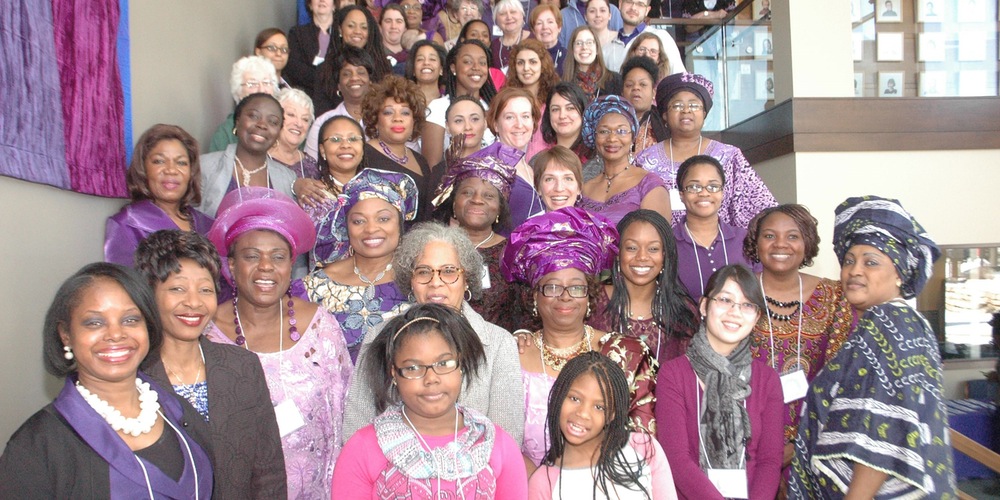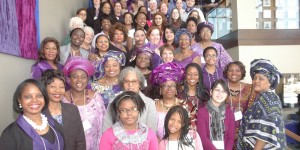


On March 8, 2016 the world celebrated the woman with the theme: “Planet 50-50 by 2030: Step It Up For Gender Equality”.
The International Women’s Day (IWD) anniversary also held in Calabar where it was further highlighted on March 14 by the hierarchy of the Niger Delta Development Commission (NDDC) via a commemorative command performance of “Little Drops”, a Stage Play by Prof. Ahmed Yerima, at Transcorp Hotel.
Speaking at the occasion Mrs Ibim Semenitari, the Acting Managing Director of the NDDC said the IWD campaign, Pledge for Parity, had gathered millions of signatories around the world.
She said the decision by the NDDC to join in the celebration included its desire ” to bring the dire and abject circumstances in which this great region, sadly, continues to wallow”, to national and international consciousness.
“As we rebuild every facet of our national life, especially the Niger Delta and the North East regions, as we set Nigeria on the path to change, under the leadership of President Muhammadu Buhari, the marginalisation of women, too, must change
“Women all over Nigeria have shown great capacity to drive the course of development…they have assumed roles of bread winners, holding society by the scruff of neck and demanding to be taken seriously.
“We must also begin to think more on helping to rebuild the lives of women and children who are unscripted victims of the conflict in the Niger Delta.
“We must do the little things, so that in the future, when we all look back, they would have made the greatest change,’’ Semenitari said.
The performance was attended by the cream of the society including the wife of the Chief Judge and wife of the Deputy Governor of Cross River; former Chairman of the NDDC, Sen. Bassey Ewa Henshaw; and members of the State Executive Council.
In her remarks, Dr Linda Ayade, wife of Gov. Ben Ayade of Cross River, reiterated her resolve to assist women in realisation of their desire for gender parity.
Drawing inspiration from the widely quoted Rhetoric’s from the longest-serving First Lady of the US, Mrs Eleanor Roosevelt (March 1933-April 1945), Ayade’s wife charged the women: “No one can make you feel inferior without your permission’’.
She said the NDDC remained welcome to Cross River to continue the celebration of what she called the international women week.
Ayade said: “We talk about challenges that women face in developing countries like Nigeria. In the Niger Delta region, we know the challenges we face historically and otherwise.
“Women, especially, have their peculiar challenges in the Niger Delta. But what you believe in comes to you; if you refuse it, it stays away.
“I am glad that women are making efforts and we are stepping forward now. I encourage women to forget the injurious traditions or whatever have been meted to them simply because they are women.
“I urge them to reject them and such harmful practices will flee. And like the biblical admonition `resist the devil and it will flee’. From now on we say that we are at par with the other gender.”
At that point the applause got loudest and deafening. Yet she was not done: “I expect that every woman should be goal-oriented because everybody has something to offer; it is just the limitations that hold one back.
“But whatever the limitations, and since you were created for a purpose, limitations can be surmounted. Yes, the road is rough. You may fail; but failure is by no means a limitation. You get up and start again. It depends on how you handle your limitations.
“There are some communities here where females are exchanged for a pig or goat for reasons adduced by those who encourage such practices that such are the victims’ worth.”
At that point there was a palpable, chilling silence in the hall. But she continued: “For those of us women who found ourselves in privileged positions, we should help others, carry them along, and I expect you to set your goals right.
“Do not follow the crowd, for as Albert Einstein once said, the woman who follows the crowd will stop where the crowd stops but the woman who finds herself going by her instincts will find for herself new places and new heights.”
She said that the play had awoken our consciousness to the harsh realities that our women and children face as a result of what she termed male dominated environment in the Niger-Delta.
According to available literature the IWD, now celebrated on March 8 every year, had its earliest observance on Feb. 28, 1909 in New York where it was organised by the Socialist Party of America in remembrance of the 1908 strike of the International Ladies’ Garment workers Union.
In 1977, following several changes in date, it was modified to the current IWD anniversary by the United Nations to celebrate the social, economic, cultural and political achievement of women and generate more awareness for their struggles globally.
It is usually observed by wearing purple ribbons.
High points of the celebration of the IWD in Calabar by the NDDC included the performance of the stage play, Little Drops, to a live audience.
The play is “the story of four women, connected through their dangerous experience in the Niger Delta crises. The play calls attention to the wanton destruction of life and property in the reion and the attendant physical problems”.
It generally “echoes the need for caution and appeals for peaceful resolution of these issues”.
But, sadly, and barely a week after the international women day celebration in Nigeria, a bill that aimed at guaranteeing women’s commensurate rights with men thrown out was on March, 15, 2016 by the National Assembly.
The bill, presented by Sen. Biodun Olujimi, representing Ekiti South and the Deputy Minority Whip, could not pass the second reading.
The Gender and Equal Opportunities Act was supposed to outlaw all forms of violence against women including sexual abuse and discrimination; solicit for adoption of special temporary measures to eliminate discrimination and ensure equal opportunities for majority of Nigerians.
It also sought for appropriate legislation against gender discrimination in political and public life.
The bill was expected to protect women in event of their spouse’s death and give them the right to retain right to children and inherit their husband’s property. The bill, touted by observers as the legal Messiah of the Nigerian girl-child, failed at the senate.
In an exhaustive debate the Deputy Senate President, Sen. Ike Ekweremadu, the sponsor of the bill, Sen. Biodun Olujimi, and other senators, the bill was dropped on cultural and religious grounds.
Some of the various reasons for the bill’s rejection in the senate were that of its supposed negation to the Holy Bible, the Sharia Law and the inherited cultures in some parts of Nigeria.







